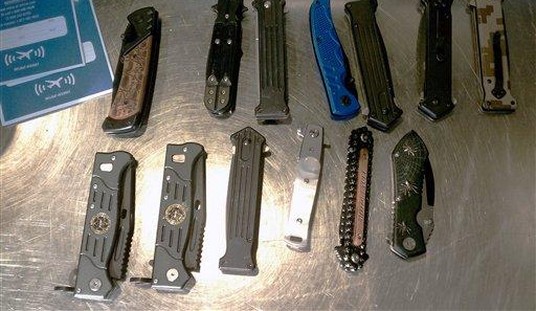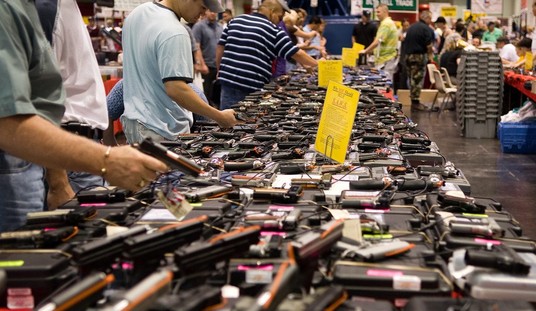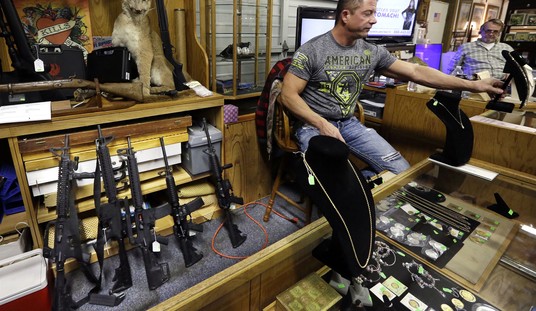The following is adapted by author Chris DeRose from his new book The Fighting Bunch: The Battle of Athens and How WWII Veterans Won the Only Successful Rebellion since the Revolution. You can also check out my recent conversation with Chris about the new book here.
Election Day
August 1, 1946
Bill White and the young men of McMinn County answered their nation’s call after Pearl Harbor. They secured the freedom of the world and returned to find that they had lost it at home. A corrupt political machine was in charge, funded by racketeering, protected by violent deputies, and kept in place through stolen elections. The veterans formed their own political movement—the GI Party—and challenged the machine at the next election. Throughout the day, veterans found themselves outgunned, assaulted, arrested, and watching helplessly as the ballot boxes were removed to the jail. Most of the GIs gave up and headed for home. Only a handful remained at a garage in downtown Athens. Bill White knew that unless someone lit a fire under them, they too would give up and the election would be lost.
“Well! Here you are!” Bill said. “After three or four years of fighting for your country. You survived it all. You came back. And what did you come back to? A free country? You came back to Athens, Tennessee, in McMinn County, that’s run by a bunch of outlaws. They’ve got hired gunmen all over this county right now at this minute. What for? One purpose. To scare you so bad you won’t dare stand up for the rights you’ve been bleeding and dying for. Some of your mothers and some of your sisters are afraid to walk down the streets to the polling places. Lots of men, too! Because they know what happens. A car drives by in the night and shoots out your windows. If that doesn’t scare you enough, they’ll set fire to your house or your barn. They’ll beat up members of your family and put them in jail. For no reason! Is that the kind of freedom you were supposed to be fighting for? Do you know what your rights are supposed to be? How many rights have you got left? None! Not even the right to vote in a free election. When you lose that, you’ve lost everything. And you are damned well going to lose it unless you fight and fight the only way they understand. Fire with fire! We’ve got to make this an honest election because we promised the people that if they voted it would be an honest election. And it’s going to be. But only if we see that it is. We are going to have to run these organized criminals out of town, and we can do it if we stick together. Are you afraid of them? Why, I could take a banana stalk and run every one of these potbellied draft dodgers across Depot Hill. Get the hell out of here and get something to shoot with. And come back as fast as you can.”4
They brought back shotguns, various calibers of rifle, pistols, squirrel guns, and a war souvenir German Mauser.
“We need some more firepower,” said Bill. And they definitely needed more ammunition. They knew there was one place to find it.
A number of townspeople offered the veterans their cars. The caravan pulled up in front of the national guard armory, a white brutish building one mile west of town. Some of the GIs had served in the guard, while others had attended wrestling matches and magic shows there, giving them some familiarity with the layout. The GIs demanded the keys from Sergeant Perly Berger, the armory caretaker. “You won’t find them in my pocket,” he said.
The group hurried into the strongroom. Jimmy Lockmiller took two .45 Colt revolvers to conceal under his Hawaiian shirt. One lucky GI grabbed a Thompson submachine gun. There were plenty of .30-caliber M1917 rifles. And, most important, ammunition. They draped themselves with bandoliers of bullets, took everything they could carry, and drove back to town.
The GIs had opened their headquarters with such fanfare—a sign of their political viability a block from the courthouse. They had passed happy days there, answering encouraging phone calls and greeting enthusiastic supporters. Now here they were, divvying up guns and ammunition. A group of GIs came in to tell them that the sheriff’s men were converging on the jail, where the ballot boxes from the waterworks and Dixie Café were taken.
Then Bill White and the fighting bunch walked out of headquarters for the last time. They made a right on Jackson Street, past the First National Bank, and the waterworks with its shattered glass door, on a sidewalk stained with the blood of veterans who wanted nothing more than to witness an honest count. They crossed Hornsby Street and stopped in front of Tennessee Wesleyan College. A reporter noted them “milling around in the center of the street,” draped in ammunition, carrying guns. They were waiting for last light to make their move on the jail.
Walt Hurt of The Knoxville News-Sentinel walked up to them. “What is your purpose here?” he asked.
“We just want to see an honest election,” said one.
“A fair count,” said another.
Hurt roamed the neighborhood interviewing people on the street. One person after another told him that they had feared violence for years. He walked up to a house near the jail and talked to two women on the porch, a homemaker and school- teacher. They fretted about their relatives in the crowd. “At least he knows how to use a rifle,” said one.
His Journal colleague Ed Harris was also on Jackson Street, observing “a group of men who bled and had buddies die for the exercise of their voting privilege. These men had been taught during their military days that one of the things they were fighting a war for was for the sacred privilege of voting in a free country, and for voting for whom they pleased. You understood from them all they wanted was a chance to vote and to make certain their votes were counted.
The boardinghouse facing Jackson Street sits on a little hill. In the backyard is an embankment, thirteen feet high, covered with trees, vines, bushes, and tall grass, overlooking White Street, roughly even with the second story of the jail. The GIs moved quickly around both sides of the house through the backyard and to the embankment.
Twenty feet away from them was the jail, a massive brick fortress that looked like a haunted house, headquarters of the McMinn county sheriff. It seemed out of place among the col- orful storefronts, the grand old courthouse, and its shady square. For years, people had gone out of their way to avoid the building and the people inside.
“Bring those boxes out and there won’t be any trouble,” someone yelled from the GI side.
An answer came from the jail. “You’re going to have to come get them.”
“That’s what we’re going to do.”
“Why don’t you call the law?” someone shouted from the jail.
“There ain’t no damn law in McMinn County!” someone yelled from the embankment.
Enough talking, Bill thought. He pulled back the bolt on his rifle.
“I heard a bolt click,” came a voice from near the jail. The deputies outside scrambled to get in.
Chuck Redfern was on the air in his studio across from the courthouse: “You’re listening to WLAR, the friendly voice of the Friendly City.” Gunfire exploded in the background and was carried on the airwaves to homes across the county.
– –
When the shooting stopped six hours later, the GIs were in control of the ballot boxes—and the county. The Battle of Athens, Tennessee, as it would be known, riveted the nation. Newspapers across the country argued over its merits and meaning. Were the GIs simply vigilantes who had taken the law into their own hands?
The Philadelphia Record asked: “What else could they do? The Constitution of the United States says ‘the right of the people to bear arms shall not be infringed.’ In Tennessee nearly every man and boy and many women know how to use a pistol, shotgun, and rifle. Nearly every home has at least ‘a lawn gun’ for potting squirrels, rabbits, birds, and other intruders. It seems reasonable to assume the Founding Fathers were thinking of more important things when they wrote the Constitution—perchance that the time might come when the bullet might be necessary to protect the ballot.”
The final word belonged to Eleanor Roosevelt, perhaps the most respected person in America, who made the battle the subject of one of her regular columns: “We may deplore the use of force but we must also recognize the lesson which this incident points for us all,” she wrote. People must be able to determine their fate at the ballot box in a fair election. Ultimately, Americans would not accept living under tyranny. “The decisive action which has just occurred in our midst is a warning, and one which we cannot afford to overlook.”
Chris DeRose is the New York Times bestselling author of five books, including The Fighting Bunch: The Battle of Athens and How WWII Veterans Won the Only Successful Armed Rebellion Since the Revolution. To learn more or connect, visit www.chrisderosebooks.com









Join the conversation as a VIP Member